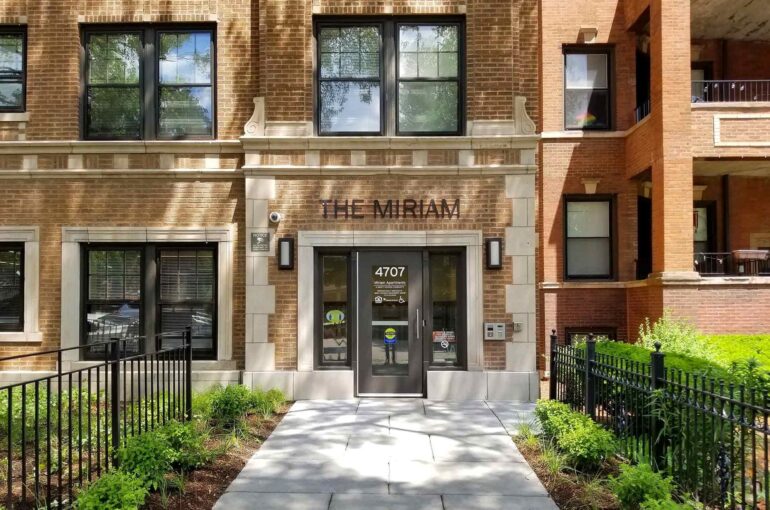Lyman Terrace Phase II is the culmination of a complete renovation of the oldest public housing property in the center of downtown Holyoke, Massachusetts. Located a block from City Hall, the Holyoke Canal Walk and many stores, restaurants and parks, this ideal location was one of the features that the community cherished and fought to preserve when the buildings were slated for demolition by the Holyoke Housing Authority (HHA). The then-Mayor, Alex Morse, intervened and asked HUD to suspend the HHA’s application for demolition. With the help of the Mayor and the formation of a partnership between HHA, the Massachusetts Housing Partnership, and the Massachusetts Department of Housing and Community Development, these organizations worked with the community to create a
 vision and funding to preserve the property. The Community Builders (TCB) was selected as the master developer in 2013 and received over $3 million in low-income housing tax credits as well as additional funding and grants to redevelop the site in two phases. The first phase included the development of 88 affordable rental units and a community building, while the second phase added 72 additional units and two playgrounds that were completed in June 2021.
vision and funding to preserve the property. The Community Builders (TCB) was selected as the master developer in 2013 and received over $3 million in low-income housing tax credits as well as additional funding and grants to redevelop the site in two phases. The first phase included the development of 88 affordable rental units and a community building, while the second phase added 72 additional units and two playgrounds that were completed in June 2021.
TCB’s architects led a redesign of the buildings by adding extensions to the flat brick facades that extended each unit with new kitchens, baths and laundry areas. These extensions help increase the square footage of each unit that allowed for a dining room adjacent to the living room, much appreciated by the tenants who were able to move back to their own units or similar ones.
A wonderful picture of handprints labeled ‘Future’ created by hands from the community hangs in the community room that is accessed by the resident children who use the room after school for studying and activities. Along with a community room, the renovation provides a computer lab and a community garden with moveable tables with a view of City Hall’s spire a short block away.
Congratulations to the entire TCB team and partners who not only preserved Lyman Terrace but elevated the buildings and the surrounding streetscape into a place that the community and residents can be truly proud of. Clocktower Taz Credits was honored to assist by providing the state tax credit equity required to facilitate the redevelopment. If you need assistance on your project seeking tax credit equity, please contact Sue Ellyn Idelson at (978) 793-9574 or SIdelson@ClocktowerTC.com.




